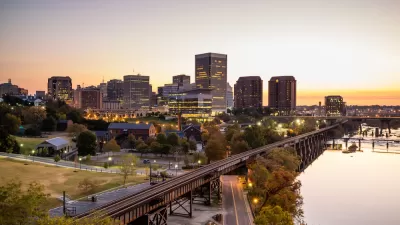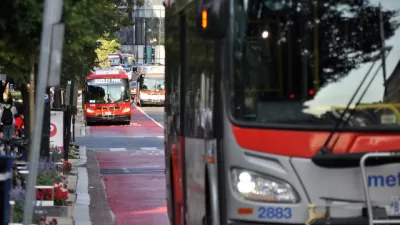Decision makers in cities can mistake their own preferences for the preferences of the city as a whole, which is doubly dangerous when elite preferences become the law of the land.

The loudest voices in shaping cities can be a non-representative sample, Jarret Walker argues in a piece for his blog Human Transit. Cities need to serve everyone. Aiming for solutions that serves a city's richest is dangerous, because, "The mistake is to forget that elites are always a minority, and that planning a city or transport network around the needs of a minority routinely yields an outcome that doesn’t work for the vast majority," Walker says.
The problem of what Walker calls “elite protectionism” is at the root of the obsession with the last-mile problem and the reason for prizing outlandish solutions over practical ones. "Large fixed-route buses are the only form of transit that can quickly scale to an entire city while still using scarce urban space with extreme efficiency. Yet many urban elites assume (subtly or overtly) that bus service doesn’t matter because it’s not useful to them personally," Walker writes.
FULL STORY: The Dangers of Elite Projection

Maui's Vacation Rental Debate Turns Ugly
Verbal attacks, misinformation campaigns and fistfights plague a high-stakes debate to convert thousands of vacation rentals into long-term housing.

Planetizen Federal Action Tracker
A weekly monitor of how Trump’s orders and actions are impacting planners and planning in America.

In Urban Planning, AI Prompting Could be the New Design Thinking
Creativity has long been key to great urban design. What if we see AI as our new creative partner?

King County Supportive Housing Program Offers Hope for Unhoused Residents
The county is taking a ‘Housing First’ approach that prioritizes getting people into housing, then offering wraparound supportive services.

Researchers Use AI to Get Clearer Picture of US Housing
Analysts are using artificial intelligence to supercharge their research by allowing them to comb through data faster. Though these AI tools can be error prone, they save time and housing researchers are optimistic about the future.

Making Shared Micromobility More Inclusive
Cities and shared mobility system operators can do more to include people with disabilities in planning and operations, per a new report.
Urban Design for Planners 1: Software Tools
This six-course series explores essential urban design concepts using open source software and equips planners with the tools they need to participate fully in the urban design process.
Planning for Universal Design
Learn the tools for implementing Universal Design in planning regulations.
planning NEXT
Appalachian Highlands Housing Partners
Mpact (founded as Rail~Volution)
City of Camden Redevelopment Agency
City of Astoria
City of Portland
City of Laramie





























